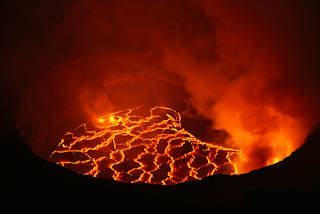Electromagnetic spectrum: all the wavelengths of visible and invisible light in order from short (gamma rays) to long (radio).
Laser: a device that produces a thin stream of light of just a few close wavelengths.

 Is the innermost and smallest planet in the Solar System. It complete orbit around the Sun in 88 days, one day in Mercury are 59 days. The orbit of Mercury has the highest eccentricity of all the Solar System planets. It completes three rotations about its axis for every two orbits.
Is the innermost and smallest planet in the Solar System. It complete orbit around the Sun in 88 days, one day in Mercury are 59 days. The orbit of Mercury has the highest eccentricity of all the Solar System planets. It completes three rotations about its axis for every two orbits. Is the second planet of the Solar System. It orbit the Sun every 224.7 Earht's day. The planet is named Venus after, the Roman goddness of love and beauty. Venus is an inferior planet from Earth. One day in Venus are 243 days.
Is the second planet of the Solar System. It orbit the Sun every 224.7 Earht's day. The planet is named Venus after, the Roman goddness of love and beauty. Venus is an inferior planet from Earth. One day in Venus are 243 days. Is the third planet of the Solar System. The Earth is the densest and fifht largest of the eight planets of the Solar System. It is the largest of the Solar System's four terrestrial planets. It orbit the Sun in 365 days and every 4 year the Earht have 366 days because one day have 24 1/4 hours.
Is the third planet of the Solar System. The Earth is the densest and fifht largest of the eight planets of the Solar System. It is the largest of the Solar System's four terrestrial planets. It orbit the Sun in 365 days and every 4 year the Earht have 366 days because one day have 24 1/4 hours. Is the sixth planet and the second largest planet of the Solar System. Saturn is also classified as a gas giant planet. Saturn have 9 rings. Because of Saturn's large mass and resulting gravitation. In Sturn one day is 10 hours 40 minutes.
Is the sixth planet and the second largest planet of the Solar System. Saturn is also classified as a gas giant planet. Saturn have 9 rings. Because of Saturn's large mass and resulting gravitation. In Sturn one day is 10 hours 40 minutes. Is the seventh planet of the Solar System and the third largest and fourth most massive planet in the Solar System.
Is the seventh planet of the Solar System and the third largest and fourth most massive planet in the Solar System.
